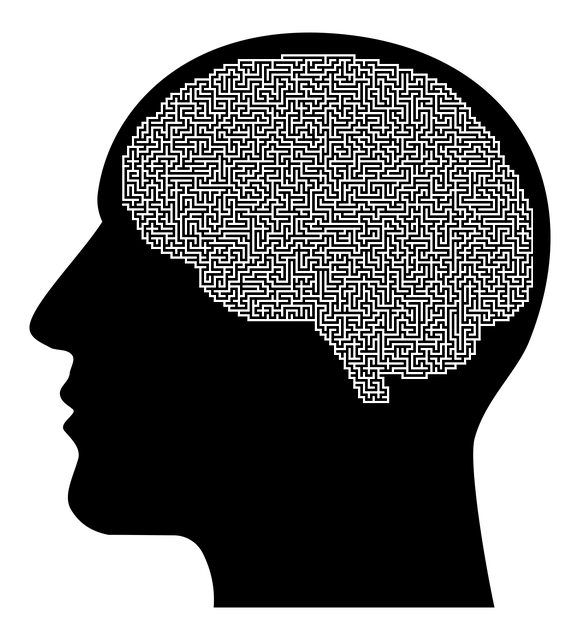TL;DR: Understanding Mental Health Data is crucial for delivering effective Aurora Panic Disorder and Anxiety Attacks Therapy. Therapists collect data through patient records, surveys, and wearable devices to gain insights into emotional states and triggers. This data helps identify patterns related to stress levels, anxiety episodes, and lifestyle factors, enabling tailored interventions like CBT, mindfulness, and exposure therapy. Empathy building strategies enhance the therapeutic relationship and risk assessment for improved outcomes. By combining meticulous data analysis with evidence-based practices, mental health professionals can significantly improve therapy outcomes for individuals struggling with Aurora Panic Disorder and Anxiety Attacks.
Mental health data analysis has emerged as a powerful tool in understanding complex conditions like Aurora Panic Disorder (APD) and anxiety attacks. This article delves into the process of collecting, preparing, and interpreting mental health data to provide personalized therapy for APD sufferers. Through identifying patterns and triggers, healthcare professionals can tailor treatments that significantly enhance patient outcomes. By exploring these strategies, we aim to revolutionize anxiety attack management, offering hope and improved quality of life for those affected by APD.
- Understanding Mental Health Data: Collection and Preparation
- Analyzing Aurora Panic Disorder: Identifying Patterns and Triggers
- Interpretation and Personalized Therapy: Strategies for Effective Treatment
Understanding Mental Health Data: Collection and Preparation

Understanding Mental Health Data is a pivotal first step in providing effective Aurora Panic Disorder and Anxiety Attacks Therapy. Collect data through various methods like patient records, surveys, and wearable devices to gain insights into individuals’ emotional states and triggers. This data can reveal patterns related to stress levels, anxiety episodes, and lifestyle factors contributing to mental health issues.
Preparation involves cleaning and structuring the data for analysis. It’s crucial to handle missing values, outliers, and ensure data consistency. Anonymizing patient information protects privacy while enabling researchers to work with valuable datasets. This process paves the way for evidence-based interventions, allowing therapists to employ tailored Empathy Building Strategies and Emotional Regulation techniques, ultimately facilitating Stress Reduction Methods in therapy sessions.
Analyzing Aurora Panic Disorder: Identifying Patterns and Triggers

Analyzing Aurora Panic Disorder involves a meticulous process of identifying patterns and triggers that can help in understanding and managing anxiety attacks. By examining data related to frequency, intensity, and context of panic episodes, mental health professionals can gain valuable insights into what precipitates these episodes. This deep dive into the specifics of Aurora Panic Disorder allows for tailored therapy approaches, such as cognitive-behavioral therapy (CBT) and mindfulness meditation, which have shown promise in treating anxiety disorders.
Empathy building strategies play a crucial role in this process. Mental health professionals must approach each case with compassion, understanding that every individual’s experience is unique. This not only enhances the therapeutic relationship but also aids in accurate risk assessment, enabling professionals to devise effective interventions. Through careful analysis and the incorporation of evidence-based practices like mindfulness meditation, mental health professionals can significantly improve outcomes for those struggling with Aurora Panic Disorder and Anxiety Attacks Therapy.
Interpretation and Personalized Therapy: Strategies for Effective Treatment

The interpretation of mental health data is a complex yet crucial process that forms the backbone of personalized therapy and effective treatment plans. By analyzing individual patient profiles, including their unique experiences with conditions such as Aurora Panic Disorder and Anxiety Attacks, therapists can tailor interventions to meet specific needs. This strategy, known as evidence-based practice, leverages research and clinical expertise to guide therapy, ensuring that each session is focused and impactful.
Personalized therapy sessions for anxiety disorders like Aurora Panic Disorder should incorporate various techniques, including cognitive behavioral therapy (CBT), mindfulness practices, and exposure therapy, among others. The goal is to empower individuals with coping mechanisms that address the root causes of their Anxiety Relief while also enhancing their overall mental wellness. Risk assessment plays a pivotal role in this process, enabling mental health professionals to proactively identify potential triggers and develop strategies for effective intervention.
Mental health data analysis, particularly in understanding Aurora Panic Disorder and its triggers, offers a powerful tool for personalized therapy. By delving into data collection and interpretation strategies, as discussed in this article, healthcare professionals can more effectively treat anxiety attacks, tailoring interventions to individual needs. This approach not only enhances the quality of care but also holds promise for revolutionizing mental health support.














